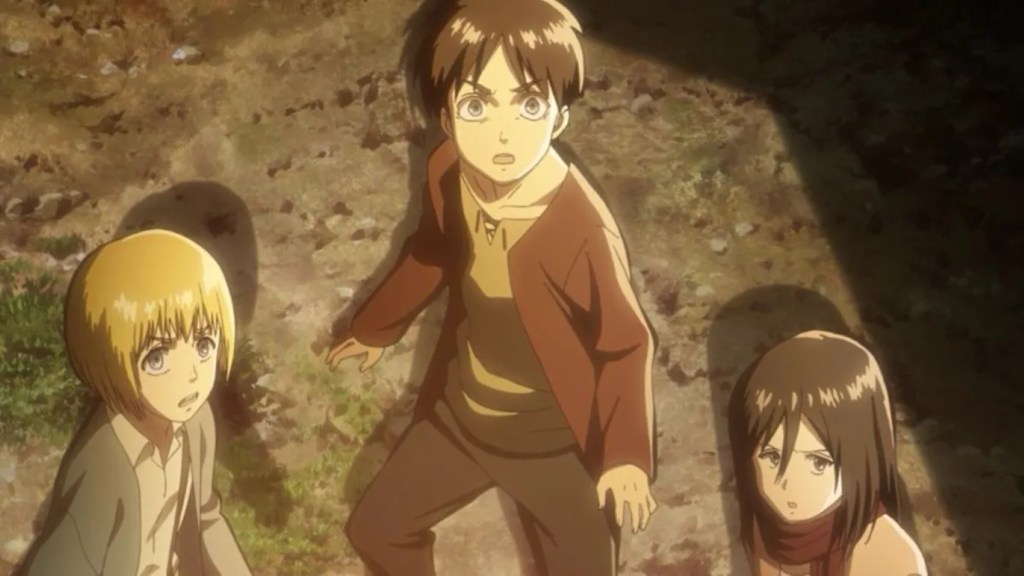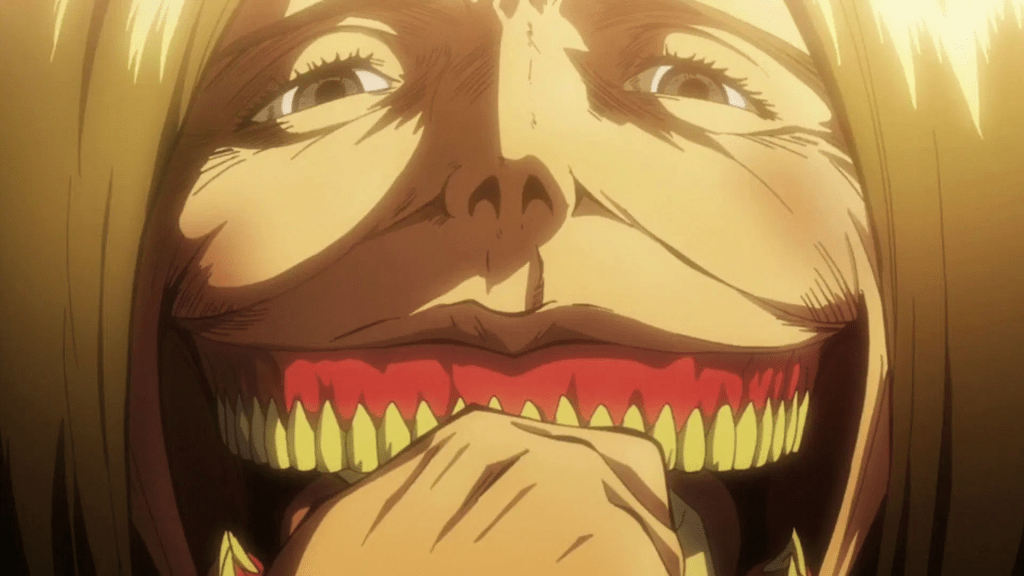When Hajime Isayama wrapped Attack on Titan in 2021, the world was already teetering on the edge of geopolitical chaos — a post-pandemic hangover mixed with resurging nationalism, surveillance anxiety, and the sort of moral ambiguity Isayama had been sketching for a decade.
Videos by ComicBook.com
But in 2025, with war rhetoric, misinformation, and ideological divides reaching yet another fever pitch, Attack on Titan feels less like a concluded story and more like an open wound. Maybe, just maybe, we need a sequel now more than ever — not to relive the tragedy, but to examine how it festers.
Attack On Titan’s End Wasn’t the End

For anyone who’s managed to avoid the spoiler-laden battlefield of anime Twitter, the finale ended with Eren Yeager carrying out — and then being consumed by — his apocalyptic plan: the Rumbling. In his desperate attempt to free his people, he unleashed a genocide that wiped out most of humanity. His friends, once sympathetic to his pain, eventually became executioners of his dream, killing him in the name of breaking the cycle of hate. The story closes on a fragile peace that feels, even to the audience, both temporary and performative. Paradis rebuilds, nations reorganize, and eventually, we glimpse humans at war again — the ruins of Eren’s world now reduced to historical relics. It’s poetic, yes, but it’s also cynical to the bone. Humanity learns nothing. That was the genius — and maybe, now, the problem. Attack on Titan didn’t “end” so much as it paused mid-sentence.
The Mirror That Stared Too Long

Isayama’s world-building always had an uncomfortable way of mirroring ours. When fans realized that the Eldian/Marley dynamic echoed real-world tensions — between oppressor and oppressed, colonizer and colonized — many were unsettled. Then came Eren’s ideological shift from freedom-seeking boy to mass-murdering zealot, and suddenly, the show stopped being escapism and became a psychological Rorschach test. In 2025, after years of rising populism, algorithmic radicalization, and “ends justify the means” politics, it’s eerie how prescient Attack on Titan feels. The series warned of how trauma breeds extremism; how history, when manipulated, can justify any horror; and how empathy collapses when safety becomes scarce. Take a glance at the headlines: regional conflicts escalating on both political and religious fronts, nations rearming in fear rather than diplomacy, entire populations dehumanized by cheap slogans. Attack on Titan’s world isn’t fictional anymore.
Most sequels exist to milk nostalgia. A hypothetical Attack on Titan: Rebirth (let’s indulge the fantasy) wouldn’t need to bring back Eren swinging from rooftops or Levi doing acrobatic knife choreography — charming as that is. Instead, it could function as a post-war retrospective, the kind of philosophical autopsy rarely explored in anime. What does peace look like when built on genocide? How does a traumatized generation rewrite truth to soothe itself? Historians call it collective amnesia. Politicians call it national myth-making. Isayama, with his gift for moral discomfort, would probably just call it human nature.
Why a Sequel Isn’t Just Fanservice

A sequel could easily shift focus onto future generations — perhaps Marleyan and Eldian children growing up in a “post-Rumbling” world. Imagine classrooms teaching a sanitized history; imagine monuments commemorating both victims and perpetrators, blurring distinction. Imagine how propaganda, again, sows the seeds of “the next cycle.” Is it hyperbolic to suggest such a story could be educational? Maybe. But so was Attack on Titan itself. Beneath its colossal spectacle, it forced audiences to confront uncomfortable parallels — the militarization of youth, the tyranny of fear, the myth of absolute freedom. The sequel, if handled with even a shred of Isayama’s nuance, could hold up that cracked mirror again, at a moment when many would rather look away.
When Titans Look Like Us

Look around: superpowers bicker over resource control while citizens drown in propaganda; social media titans (pun unavoidable) manufacture outrage with frightening precision; drones replace Scouts in skies of “security.” The omnipresent Eye of Marley has, quite literally, gone digital. International politics thrives on cycles of vengeance — exactly what Attack on Titan dissected. Eren believed destroying his enemies would end the cycle, only to perpetuate it. Likewise, modern states justify “defensive aggression” under banners of survival, freedom, and justice. Each nation is Eren in its own narrative — convinced it’s cornered, choosing annihilation over compromise.
Attack on Titan’s ending, haunting as it was, begged for a dialogue that never quite got its turn. Instead, fans argued endlessly about “who was right,” reducing a meditation on moral complexity into online tribalism — a miniature Marley vs. Eldia, if you will. Maybe that’s the tragedy and brilliance of Isayama’s creation: it refuses to close neatly because the world doesn’t. Still, in this decade of polarized politics and amnesiac storytelling, we could use a moral jolt — a reminder that empathy’s extinction is more terrifying than any titan. So yes, a sequel may never happen. But if it did, and if it dared to look at our current world through the cracked lens of Paradis, it might not just entertain; it might convict us. And perhaps, for once, fiction could shake us awake before history repeats — again, and again, and again.
What do you think? Leave a comment below and join the conversation now in the ComicBook Forum!









